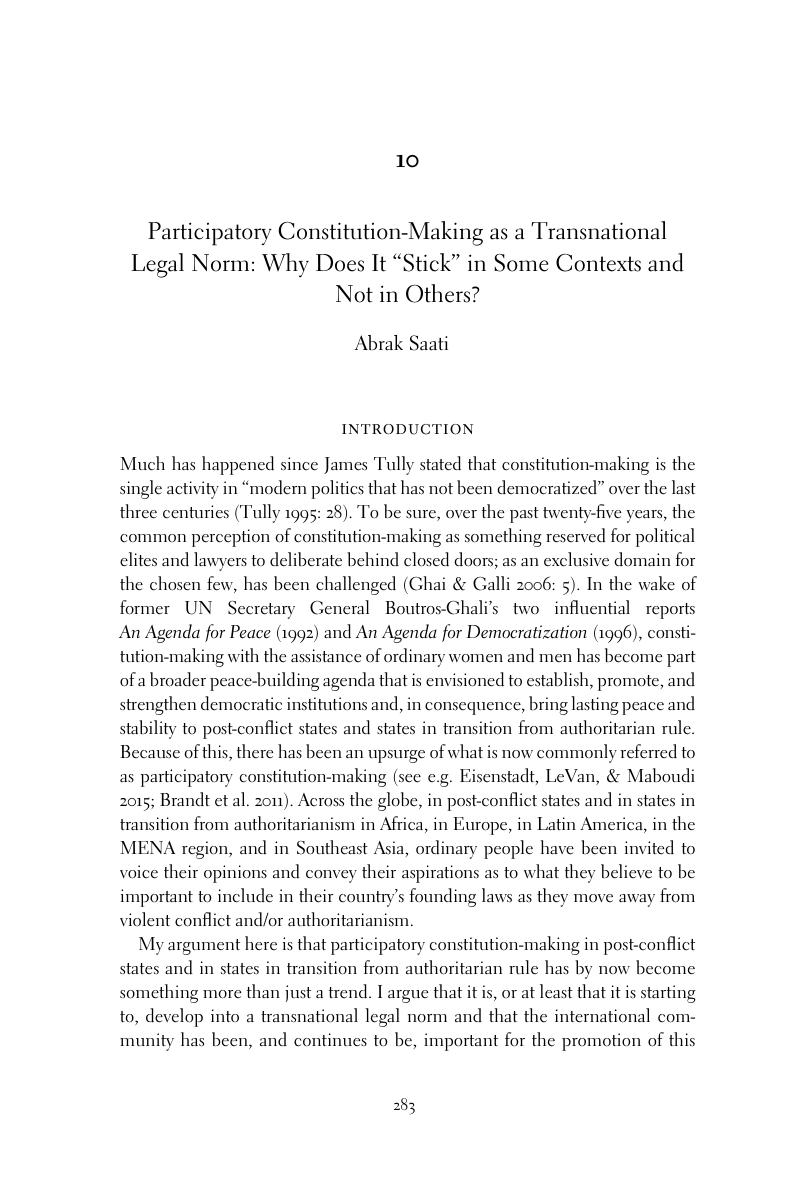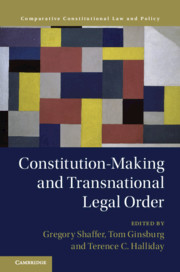Book contents
- Constitution-Making and Transnational Legal Order
- Comparative Constitutional Law and Policy
- Constitution-Making and Transnational Legal Order
- Copyright page
- Dedication
- Contents
- Figures
- Tables
- Contributors
- 1 Constitution-Making as Transnational Legal Ordering
- 2 Constitutional Advice and Transnational Legal Order
- 3 A Transnational Actor on a Dramatic Stage – Sir Ivor Jennings and the Manipulation of Westminster Style Democracy in Pakistan
- 4 Constitutions in World Society: A New Measure of Human Rights
- 5 Constitutional Dialects: The Language of Transnational Legal Orders
- 6 Transnational Constitution-Making: The Contribution of the Venice Commission on Law and Democracy
- 7 Autocracy under Cover of the Transnational Legal Order
- 8 Democratic Erosion and Constitution-Making Moments: The Role of Transnational Legal Norms
- 9 The Possibilities and Limits of a Constitution-Making Transnational Legal Order: The Case of Chile
- 10 Participatory Constitution-Making as a Transnational Legal Norm: Why Does It “Stick” in Some Contexts and Not in Others?
- Index
- References
10 - Participatory Constitution-Making as a Transnational Legal Norm: Why Does It “Stick” in Some Contexts and Not in Others?
Published online by Cambridge University Press: 08 April 2019
- Constitution-Making and Transnational Legal Order
- Comparative Constitutional Law and Policy
- Constitution-Making and Transnational Legal Order
- Copyright page
- Dedication
- Contents
- Figures
- Tables
- Contributors
- 1 Constitution-Making as Transnational Legal Ordering
- 2 Constitutional Advice and Transnational Legal Order
- 3 A Transnational Actor on a Dramatic Stage – Sir Ivor Jennings and the Manipulation of Westminster Style Democracy in Pakistan
- 4 Constitutions in World Society: A New Measure of Human Rights
- 5 Constitutional Dialects: The Language of Transnational Legal Orders
- 6 Transnational Constitution-Making: The Contribution of the Venice Commission on Law and Democracy
- 7 Autocracy under Cover of the Transnational Legal Order
- 8 Democratic Erosion and Constitution-Making Moments: The Role of Transnational Legal Norms
- 9 The Possibilities and Limits of a Constitution-Making Transnational Legal Order: The Case of Chile
- 10 Participatory Constitution-Making as a Transnational Legal Norm: Why Does It “Stick” in Some Contexts and Not in Others?
- Index
- References
Summary

- Type
- Chapter
- Information
- Constitution-Making and Transnational Legal Order , pp. 283 - 311Publisher: Cambridge University PressPrint publication year: 2019
References
- 2
- Cited by



